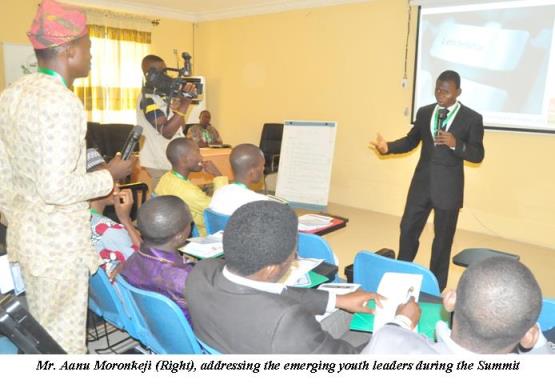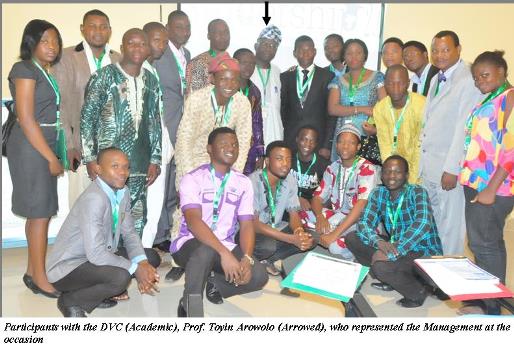I know you think! And you know / think you think. However, how much
time do you dedicate to reflect on your life – your actions, inactions, values,
achievements, frailties, prospect and the future? How often do you examine the
pace - most importantly, the impacts – you create each day?
These questions remind us of the ever-dynamic need to consciously and
consistently examine how we live (not just existing) daily. As the Greek
philosopher, Socrates opined, 'an unexamined life is not worth living'. A few
days ago, I shared an opinion with IdeaMensch on my most productive habit as a
social entrepreneur - and human :). Guess what that is: reflective thinking.
Each day, I become more conscious of the need to do more than just
setting out time to consciously think, but to make it fun, and more productive.
This daily action makes me get the best in almost every activity. The choice of
reflectively having fun thinking through all my actions and plans makes me
review promptly where I had made a mistake, where I can contribute more, what
lessons I learnt, how I can put the lessons to use, what to share with others,
among other options.
Fortunately, my parents had inculcated a maxim into our daily lives,
while we (my nuclear family) were much younger. My dad taught my siblings and
me to always end each day asking 'How Many Lives Have I Touched Positively
Today?'. This bed-time activity - I must confess - had been a foundation for
reflective thinking.
One of the major catalysts to reflective thinking is asking the right
questions. The right questions - coupled with honestly sincere answers - have a
way of enhancing your reflective thinking prowess and adding value to the
quality of life you live. Most times, when I reflect, I think in terms of my
values, activities, experience and futurity.
I suggest you brace up with the type of questions you ask yourself,
and be honest in working on the quality of result you can get, by working on
your answers. As John Maxwell shared in his book 'Thinking for a Change', you could reflectively think about – just
as he does – your values, relationship and experiences.
THINKING RELATED TO VALUES
•
Personal
Growth: What have I learnt today that will help me grow? How can I apply it to
my life? When should I apply it?
•
Adding
Value: To whom did I add value today? How do I know I added value to that
person? Can I follow up and compound the positive benefit he or she received?
•
Teamwork:
What did I do with someone else that made both of us better? Would the other
person agree that it was a win/win? Can we do something else together to
continue our mutual success?
•
Leadership:
Did I lead by example today? Did I lift my people and organisation to a higher
level? What did I do, and how did I do it?
•
Physical
Health: Did I exercise at my optimal heart rate for thirty-five minutes today?
Have I exercised at least five times in the last seven days?
•
Personal
Faith: Did I represent God today? Did I practice the Golden Rule? Have I ‘walked
the second mile’ with someone?
THINKING RELATED TO RELATIONSHIP
•
Marriage
and Family: Did I communicate love to [my spouse], children and the
grandchildren today? How did I show love? Did they return it?
•
Friends:
Have I been a good friend this week? To whom? What did I do? Is there something
else I need to do? Is there another friend who needs me?
•
Inner
Circle: Have I spent enough time with my key players? What can I do to help
them be more successful? In what areas can I mentor them?
•
God: Have
I spent time with God? What is he teaching me now? Am I learning? Am I obeying?
Have I continually talked to him today?
THINKING RELATED TO EXPERIENCE
•
Discoveries:
What did I encounter today to which I need to give more thinking time? Are
there lessons to be learned? Are there things to be done?
•
Memories:
Did I create a good memory for someone today? Was it because of a comment, an
action, or a shared experience?
•
Difficulties:
What went wrong? Could I have changed it? What do I need to do differently next
time?
• Successes:
What went right? Did I create it? Is there a principle I can learn from the
experience?
•
People:
Whom did I meet? What were my impressions?
•
Conclusions:
Have I closed my day appropriately? Have I expressed gratitude? Have I learned
something, loved someone? Have I enjoyed and lived the day to the fullest?
Are the above questions helpful? You may add yours, or create
different set of questions and methods to use in reflective thinking. Begin by
creating general questions that can be used after any event, meeting or
experience. Then create more specific questions related to your values and
relationships. The main thing is to create questions that work for you, and
write down any significant thought or insight that comes to you during the
reflection time.
Before I conclude today’s post, please be reminded that though writing
down the good thoughts that come out of your reflective thinking has value,
nothing helps you grow than consciously putting your thoughts into action.
Start setting out time for reflective thinking, stay away from distraction, ask
yourself helpful questions and take prompt action.
I will love to read from you. Post your comment in the box below, or
send me a mail (damolamore@gmail.com).
How often do you engage in
reflective thinking?
What impact does it have on
you?
What questions do you ask when
thinking reflectively?































